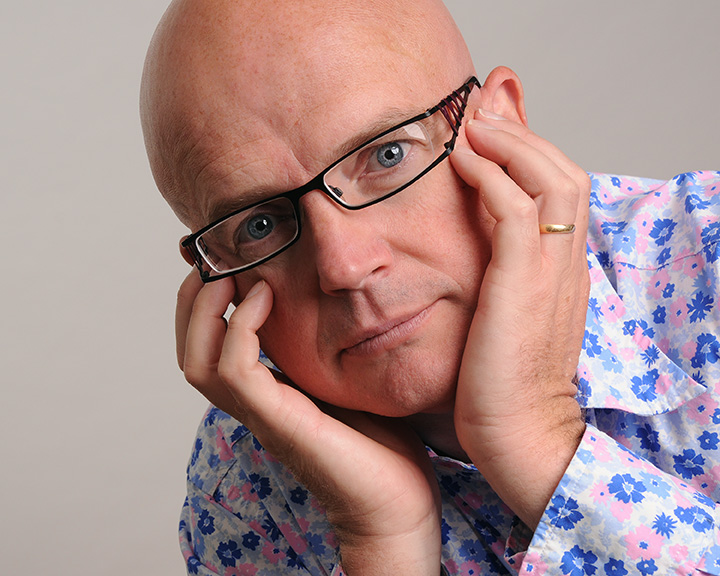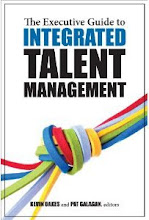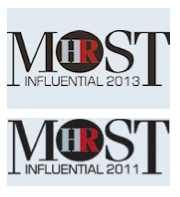For the final system, we're going to try to understand wisdom in leadership!
We started with a working definition of wisdom - something about responding to changing stimuli in a complex system.
- Diana Barea, Accenture - Drawing insights - working as an ensemble of leaders who complement and work together - working with technology that makes them more effective than humans along would ever be - an extension of their own insights and takes pressure off them as all knowing, all seeing leader.
- Geraldine Haley, Standard Chartered - Being adaptive. the industry has changed and become more complex - different stakeholders, new purpose - doing good vs being profitable. leaders don't have all the answers any more so traditional ideas gone out of the window, Exploring new paradigms.
- Andrew Dyckhoff - leaders understand they need mentoring now - they're feeling overwhelmed as they've built a myth around themselves that they're very good at many things. but what brings success is self knowledge about what I do uniquely well. We're all rife with biases and prejudices - the art is understand our own biases and assembling the best team around us.
- David Rock - teams make better decisions than individuals. But there is a relatively fixed iQ of a team. The key variable is the social intelligence of the teams rather the individuals' IQ.
Capabilities around pragmaticism, emotional balance, self-understanding etc - all these different stakeholders.
From a brain region perspective, you don't really see that much. But there are five key neural processes involved in wisdom
Direct experience. It's not a Buddhist thing, but how much information you can process in the moment:
- Paying attention / mindfulness. Otherwise you miss all the social signals - need all your channels to pick these up.
- In the moment, eg the Mindfullness Stress Reduction approaches
- In an open, accepting way
Self regulation: being able to change ourselves on different levels. Priming ourselves and changing the signals, altering on the fly. Activites during labelling, regulation and other activities. Leaders need to be able to stop themselves shouting at their teams, having a phone call vs sending a 16 page email etc.
Goal focus. The capacity to hold in mind something in the distant future. Perhaps quite subtle, conceptual goals. Note the purpose of a leader is to see things others can't, which is also the definition of insanity. This is the easiest attribute to test for etc, so we already have lots of goal focused leaders. A non-issue.
- Diana - goals are morphing from logical to emotional goals eg behaviours which support values. Supporting the bigger purpose. Gen Y need this vision and understand how what they're doing support this (Gen X don't???)
- Geraldine - difficult as leaders don't have time to think - snatched moments in the shower. We need to create time in peoples' diaries for thinking time. (We talked about this earlier -
- Or a team agenda full of action points vs the most important things we could talk about now - with the team setting the question
- Andrew - It's difficult to develop these capabilities as leaders have got where they are by focusing on different things.
Social cognition, eg using David's SCARF model - status, certainty, autonomy, relatedness and fairness. It's not just about having a language, but how you use this language. Eg after the fact you can use it to explain a day that went wrong. but interesting is during a conversation - 'there's a threat response here, let's deal with it'. Shift to the reward state.
Leaders need to be able to imaging the minds of other people and predict ahead of time what is going to happen. But when you're a senior leader with lots of goals it's difficult to find time to mentalise about other people. (Cop out!)
Insightfulness - problem is that managing ambiguity often requires creative solutions. Unconsious thinking is needed, especially for complex issues. but brain is often distracted. need to ask questions and leave time for unconscious to bubble up, signals need time to come through.
- Andrew: Pre frontal cortex is tiny compared to rest of the brain. Need to think beyond logical thoughts. But gut feel is a triumph of instinct / impulse over insight.
- Geraldine invited 15 leaders most critical to China to come to China and have a different experience and reappraise the strategy for China. They went out on a bus to the countryside. They re-evaluated strategy, and SC can see how they're not thinking differently about other things.
- David - reappraisal is seeing possibility of doing different things, having different opinions. You are not your thoughts, you can have different thoughts and choosing different pathways. Difficult without diverse experience.
- Diana - leaders need to let go of existing habits - challenging. Particularly if they believe toxic behaviours are the right things that the organisations want them to do.
What do we know about improving these processes?
We can increase peoples' mindfulness. It's not easy but it does have robust effects. There are solid studies of extended focus on mindfulness - but we haven't yet properly tested benefit of 2 or 3 minutes a day. But we do know mindfulness physically changes the brain.
Self regulation - things like labelling emotions and discarding them. Stress innoculation - putting leaders in scary places so they learn to manage their emotions and can manage other situations. Developing physical regulation helps emotional regulation too.
Goal focus - use episodic future thinking - imagine yourself doing something in vivid sort of way. (NLP new behaviour generator?)
Social cognition is a big one. We can improve social intelligence. Taking account of other peoples' perspectives helps understand others. Increasing face to face interation vs using digital helps.
What can we learn from women? Women are better at symphasising before they read an emotional cue / an experience - really helps with emotions. But when men are sufficiently motivated, we're almost as good as women. We have the circuitry. There's a motivational issue.
Insightfulness. Harder to improve. Have that nap, have a good night's sleep help get back to a baseline. Beyond that, there's always going to be high variance between people.
Direct experience has the greatest impact but the hardest to get leaders to do. And in terms of social cognition, a more mindful leader recognises social cues better too.
- Geraldine - helping goal focus by getting a team together and have them all talk about feeling re the goals.
- Andrew - train leaders about neuroscience and as they're clever people, they'll quickly change their habits that lead to a threat response (not convinced!)
- Diana - use ramification and Second Life???
- Diana / David - use concrete activities with social pressure support.
BTW< how do you change these habbits (see 'Turn the 360 around')?
- Work on one or two habits only
- Apply positive social pressure
- Use implementation intentions - put something concrete in unconcious form so can physically recognise when it’s time to implement that routine. ('When I’m speaking to a colleague do nothing else for 1 minute then ask 1 question' - an if then formula). Push stuff into unconsious - prefrontal can’t remember stuff
Right, that's it. I will be trying to post a personal reflection on all of this on the train on the way home. And I'll be back for the session on performance management tomorrow morning!
Technorati Tags: David Rock, neuroleadership, Diana Barea, Geraldine Hayley, Andrew Dyckhoff, wisdom
Turn the 360 around as doesn’t create habits
Work on one or two habits only
Positive social pressure
Implementation intentions - plus something concrete in unconcious form so can physically recognise when it’s time to implement that routine. (I’m speaking to a colleague do nothing else for 1 minute then ask 1 question - if then formula)
Push stuff into unconsious - prefrontal can’t remember stuff





























0 comments:
Post a Comment
Please add your comment here (email me your comments if you have trouble and I will put them up for you)